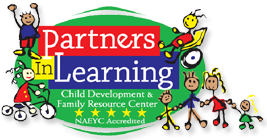 |
| Parents listening to our ECAC speaker |
If you missed the workshop, here are some of the highlights!
ECAC offers parents of children with special needs with:
1) Individual assistance with educational concerns
2) Parents education workshops on a variety of topics
3) Information packets and referral services
4) Lending library
5) Informative newsletter
6) IEP Partners
7) Parent to Parent Support
8) Information and assistance to parent groups
During the workshop, parents learned about advocacy. An advocate (with or without disability) can be any person who is “speaking for another person or cause.”
Parents are their child’s best advocate because you know your own children better than anyone else and you have known them for the longest, not to mention you are the person who cares the most!
Parents advocate for appropriate services/support, particular programs/settings, opportunities, as well as many other important topics.
In order to effectively advocate for your child, you need the knowledge of their disability and how it affects their learning, the knowledge of the laws and your rights, and the skills to use your knowledge to fullest!
Effective advocates:
· pay attention by gathering, reviewing, and using information
· understand how the “system” operates by knowing the laws (IDEA ’04, 504, FERPA, NCLB, ADA)
· communicates effectively by talking to teachers and practicing proactive communication, planning ahead, and listening effectively
· identifies problems and proposes solutions
· plans ahead and prepares for success
· keeps written records of past requests, any data, IEPs, and progress notes or report cards
· builds working relationships for the future
To be an effective advocate, You MUST:
· assume that everyone at the table cares about your child
· be optimistic about an agreement being reached
· leave “personal baggage” at home
· know what YOU want for your child
· know that there are NO personal issues
· be assertive
· become a “win-win” negotiator
· document meetings and calls
· have a good understanding of special education law and procedures
· recognize the power of the IEP
· know how to get answers to legal or procedural questions
· understand where you are in the Special Education Process
· know when your are in “over your head” or need some support… and call ECAC






No comments:
Post a Comment